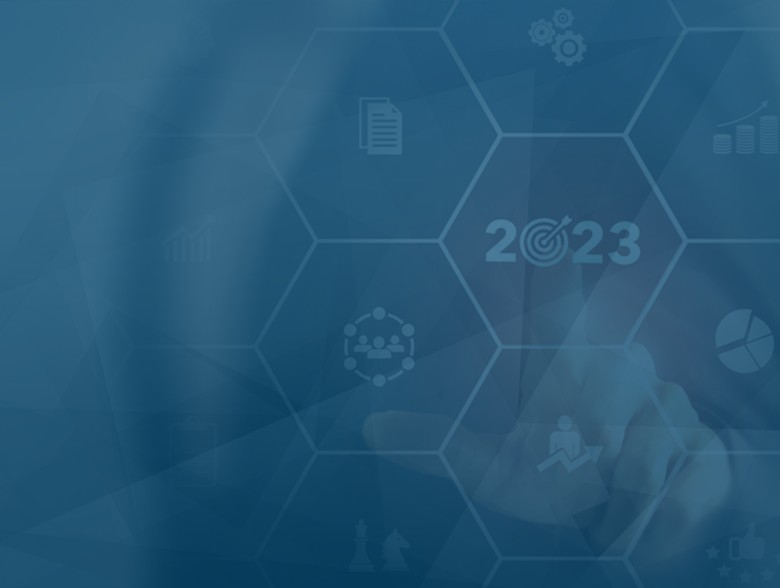- The best portable power stations for camping in 2025: Expert tested and reviewed
- "제조 업계, 스마트 기술 전환 중··· 95%가 AI 투자 예정" 로크웰 오토메이션
- What to Do If You Book a Hotel or Airbnb and It Turns Out to Be a Scam | McAfee Blog
- Cómo evitar la fuga de cerebros en TI
- Is ChatGPT Plus still worth $20 when the free version packs so many premium features?
2023 Predictions

By Dr. Chenxi Wang, Founder and Managing General Partner, Rain Capital
For venture capitalists and investors with an eye on technology, 2022 was a chaotic year. This turmoil was partly driven by factors outside the tech sector’s control, such as the Russia-Ukraine War and the lingering economic aftereffects of the Covid-19 pandemic. These events were felt in every corner of the world, creating challenges for the current venture investment scenes.
Be that as it may, the market marches on, and trends emerge. Some materialize despite market forces, and others occur because of them. Savvy investors know that rather than respond emotionally to the day’s news, it’s critical to take a more expansive view and look at the long trajectory of trends, whether they’ve been building up for years or are only just now appearing on the horizon.
Spotting tech trends and taking the long view is part of what I do daily as General Partner at Rain Capital. Our portfolio companies have placed their trust in us, and I take that trust very seriously. So when I was asked what my predictions are for investors and venture capitalists who want to put their money into the tech sector, I isolated three things I believe will play a significant role in 2023. These predictions will be helpful both to our investors and to others hoping to capitalize on the field’s constant innovations.
Data security will be a focus.
Data security is already a significant concern for most organizations and has been for some time, but in 2023 I expect it to be in the spotlight even more than it is today. We continue to see new requirements and regulations that pertain to data security, data protection, and data governance, many of which have separate initiatives and budgetary allocations from existing security projects. This will be an exciting area for innovation, and I expect that to continue for the foreseeable future.
AI will be a game changer for cybersecurity.
Increasingly, I’ve seen bridges built between cutting-edge AI technologies and security initiatives. In September of this year, CNBC reported that the global market for cybersecurity products using artificial intelligence is expected to reach $134 billion by 2030. In contrast, the amount spent on it in 2021 was just $15 billion. Time will tell if that projection is accurate. Still, today it’s clear that the ability to cross-pollinate between AI and security will drive many innovations that those of us immersed in the industry have not even considered previously.
Alignment with engineering will come into clarity.
New software is being created every day, and too often, security is a secondary consideration that only comes into play once an application has been entirely built. With companies like Snyk and others who lead the charge for developer-centric security, I believe a trend is coming into view now, which is about seamlessly embedding security measures into the engineering process and pipelines. Security will become an integral part of dev tooling and infrastructure layers, further shifting security “left” and achieving alignment with development and engineering teams.
Staffing challenges will continue to drive innovation.
In cybersecurity, there are more open positions than there are people to fill them. In the past decade, there has been a massive boom in digital environments, all of which need to be secured, and there simply hasn’t been enough training to fill the pipeline at the necessary pace. Even with the economic downturn, demand for cyber talent is outpacing supply. Because of that, we have an opportunity to do things differently in the cybersecurity world. For instance, innovation in automation will be even more of a force multiplier when human talent is scarce. Similarly, data-driven insights and intelligence will be more impactful when manual work ceases to be an option.
It’s essential to add that while geopolitical and economic uncertainties may make investors take a more conservative approach, those same forces have famously driven cutting-edge innovation in the past and will do so again. Great companies are formed in a down economy. Currently, security is still driven primarily by conventional technologies that are meant to be used on premises in a traditional infrastructure environment. Frankly, that’s not good enough. Cloud has thoroughly disrupted traditional computing, requiring people to manage and defend their data differently. This tension will be exacerbated when productivity and efficiency are put to test with tough economic constraints.
The good news is that there’s plenty of room for change and innovation, and venture capitalists will have many opportunities to back the next great security technology, whatever that might be. Innovation will be needed to bring existing security operations into this cloud-forward or cloud-native environment. The opportunity for someone to create the next great revolution in cybersecurity is immense.
About the Author
A leading venture capitalist in the Bay Area, Dr. Chenxi Wang is the founder and managing general partner of Rain Capital, a Silicon Valley-based venture fund. She previously held leadership positions at top companies including Twistlock, Intel and Forrester, and currently serves on the Board of Directors for MDU Resources, a Fortune 500 company. Wang is also a Forbes contributor and writes a column for Dark Reading.
Chenxi can be reached online at LinkedIn (https://www.linkedin.com/in/chenxiwang88/) or Twitter https://twitter.com/chenxiwang and at our company website https://www.raincapital.vc.

